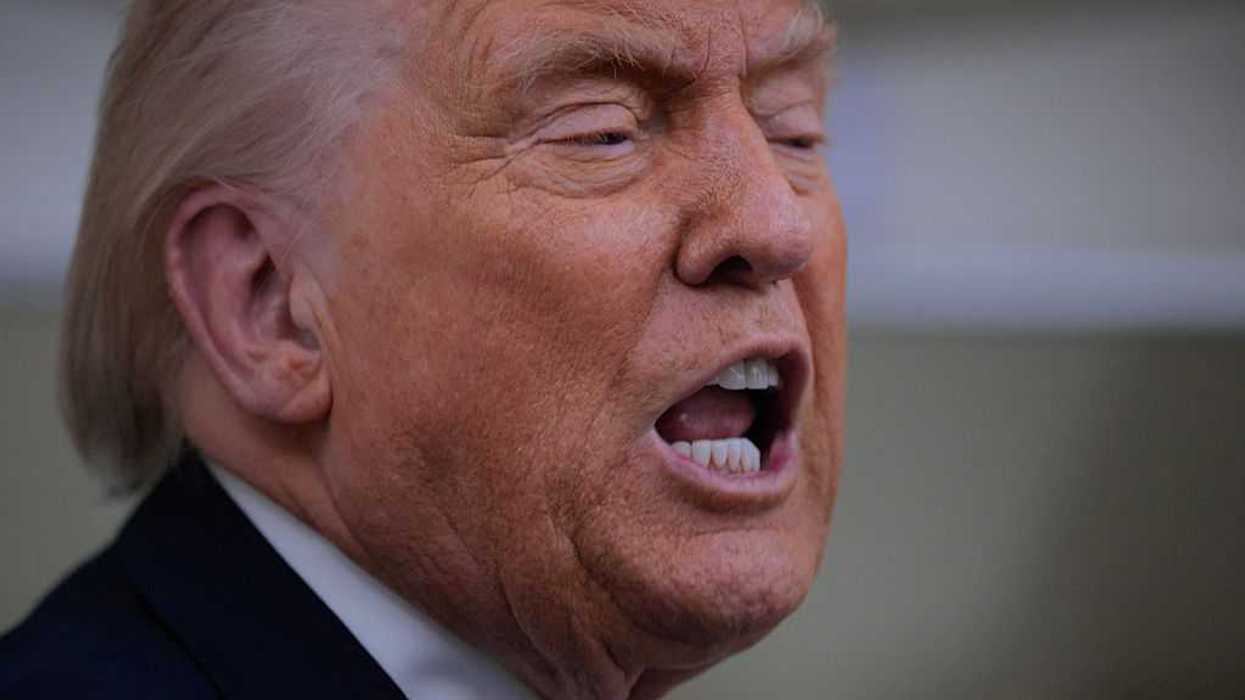Hitting the restart button on the Federal Election Commission during this campaign season is not the answer to better enforcement of the rules regulating money in politics, a coalition of good-government groups says.
Twenty-one such organizations declared their disagreement Monday with a proposal from a bipartisan collection of 31 prominent campaign finance lawyers. Last week the lawyers asked President Trump and the leaders of Congress to come up with an entirely new slate at the FEC to oversee campaign donations and spending in this year's presidential and congressional races.
Since the law allows half the commissioners to favor broad deregulation, because they're Republicans, lax enforcement and gridlock would be the end result of such an overhaul, the reform groups argued. Instead, they called for the confirmation of one or two new commissioners to create a quorum permitting at least minimal oversight through November.
The agency has had a long run of ideological division. And, since it's designed so that neither party may fill a majority of the seats, that polarization has meant many of the toughest decisions have gone unaddressed for years.
But that paralysis has now gone to a new level. The panel has had just three members, one short of the minimum required to take any substantive action, for the past 19 weeks. All are serving past the expiration of their terms, as the law allows. But they may not hold public meetings, open new investigations, identify and sanction newly alleged campaign finance violations, or conduct audits of presidential candidates' fundraising and spending. Neither can it dispose of more than 300 cases already on its docket.
The last time there was no quorum was 2008. But, after six months with just two seats occupied, President George W. Bush and Senate Democrats restocked the entire commission in June, allowing it to referee campaign finance disputes during the general election campaign.
Trump's one nominee for the agency, Republican Texas attorney Trey Trainor, has been in limbo for two years — and his confirmation has recently grown more complicated. The newly released files of the late Thomas Hofeller, who was renowned for his expertise as a partisan gerrymanderer, shows that he worked with Trainor to make the districts in normally Democratic-leaning Galveston County much more favorable to the GOP, according to the news site WhoWhatWhy.
If his nomination stays alive, as a practical matter the only way to get a second vacancy filled would be if the choice was assigned to the top Democrat in the Senate, Minority Leader Chuck Schumer.
The lawyers say the time is ripe for Trump to put forward an entire slate of six, three of whom would have to be Democrats.
But the the good-government groups say that, instead, after at least one new person is seated, a bipartisan blue-ribbon panel should be established to help find qualified candidates to fill the remaining spots.
While the groups agree that a functioning FEC is crucial to the country's electoral process, especially ahead of this year's election, they said the agency's problems predate its loss of a quorum: "Those problems stem largely from the historical practice of nominating and confirming commissioners who are ideologically opposed to the mission of the agency and who block enforcement of our nation's anti-corruption laws."
"To ensure the 2020 elections are transparent and fair, the president and Senate must prioritize restoration of the FEC's quorum, but that is no excuse to restock the FEC with yet another crop of commissioners who oppose campaign finance reform," argues Adav Noti of the Campaign Legal Center, one of the groups on the letter.
The other organizations include Citizens for Responsibility and Ethics in Washington, Common Cause, End Citizens United Action Fund, League of Women Voters of the United States, Public Citizen and Take Back Our Republic.





















